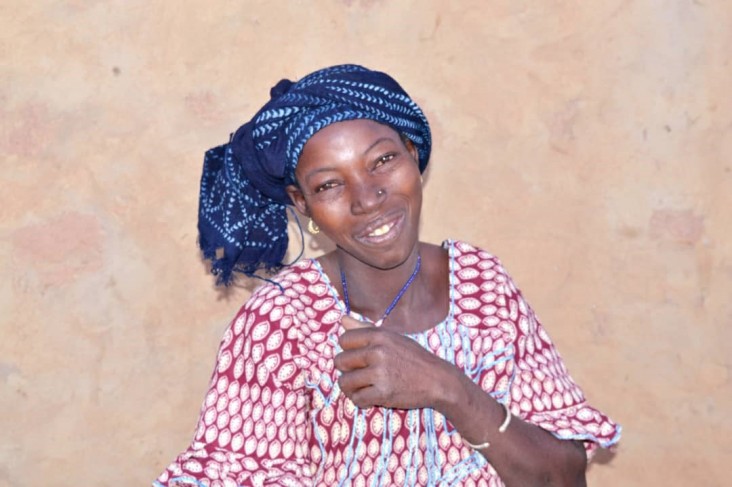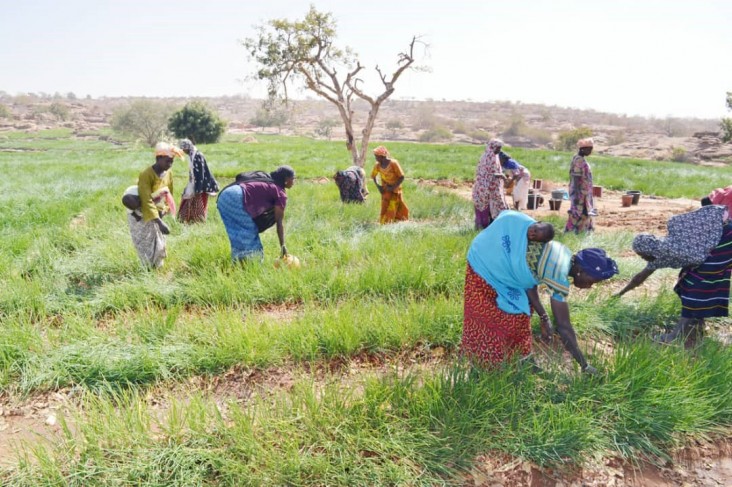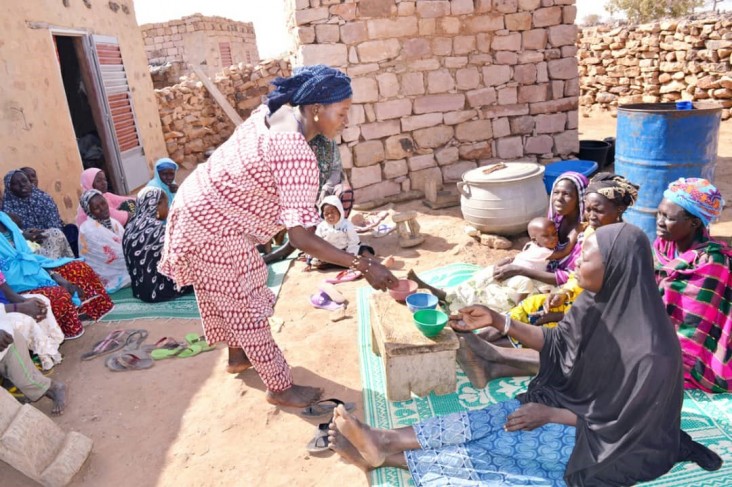Speeches Shim

Aissata Nantoumé wakes up early every morning to cook and take care of her four children and the entire house in Dagabidé, in the center of Mali. Known as a hard worker, her daily routine is not only limited to childcare and housework. Aissata is also the Dagabidé’s only traditional baker, a successful farmer, the main breadwinner in her family, and a community mentor.
Aissata engaged in small business
In 2016, when USAID-funded Harande Resilience Food Security Activity started in Dagabidé, Aissata joined the local Village Savings and Loan Association (VSLA). Through this saving and credits body she took out a $8 loan to start a small income-generating business in traditional baking. Aissata is not alone in her quest—to date, Harande has established 347 VSLAs that have 9753 members, including 9,488 women.
To complement her VSLA membership and help her succeed in her small business, Aissata enrolled in Harande’s youth entrepreneurship program, along with 1,530 other young people, of whom 867 are girls and young women. She received training in income-generating activities, financial management and a starter kit with utensils and other kitchen equipment. Additionally, Aissata learned how to make improved fireplaces, which are environmentally friendly and require less wood. “Thanks to this support, I am able to bake more and faster. At the beginning, I earned just $0.86 a day, but now I earn more than $5.17 a day," adds Aissata.
This additional income enabled Aissata to better support her family. “We often eat the pancakes she makes at lunch. On top of that, the income enables us to take care of children’s clothing. These income-generating activity starter kits have significantly contributed to reduce the youth migration in our community,” says Hama Kèlèpily, Aissata’s husband.
Bolstering Income through Increased Agricultural Production
Aissata also decided to join other activities, including the Farmer Field and Business School (FFBS). This activity places farmers at the center of learning, decision-making, and adoption of best agricultural practices to maximize agricultural production and mitigate the effects of climate change. The course applies integrated themes on sustainable agricultural practices, market engagement, gender and equity, food and nutrition security, group empowerment, and monitoring and evaluation. "In the FFBS, we have been taught to prepare agricultural plans in accordance with our production objective. They also facilitate our contact with microfinance institutions so that we can acquire inputs from suppliers,” says Aissata.

A Leading Mother in Nutrition and Childcare
To complement her involvement with savings and farming groups, Aissata attended training on nutritional best practices, cooking, production of enriched millet flour made from local products, and malnutrition screening. She also learned best practices on water, hygiene and sanitation, including hand washing with soap at key moments, the use of latrines, and food and environmental hygiene. Her deft skills and knowledge made her the perfect candidate to be a lead mother in her community. Today, Aissata is one of 7,980 women from 798 groups that mentor other women by advising on good nutritional and hygiene practices. Aissata and other women have reached more than 18,285 pregnant and lactating women and adolescent girls with awareness campaigns on essential health, nutrition, hygiene, and sanitation behaviors.
Aissata is an exemplary businesswoman and she is making a real difference in her community and at home, “Harande has opened my eyes and thanks to this support my children are still healthy," concludes Aissata.

Harande, food security in Fulani, is a five year program funded by USAID from 2015 to 2020. This program aimed to sustainably improve the food, nutrition, and income security of 224,100 vulnerable households in Youwarou, Tenenkou, Bandiagara and Douentza in Mali’s Mopti Region. This area is beset by frequent droughts, recurrent conflicts, and instability. The program is a Resilience Food Security Activity (RFSA) implemented by a consortium of national and international NGOs led by CARE.

Comment
Make a general inquiry or suggest an improvement.